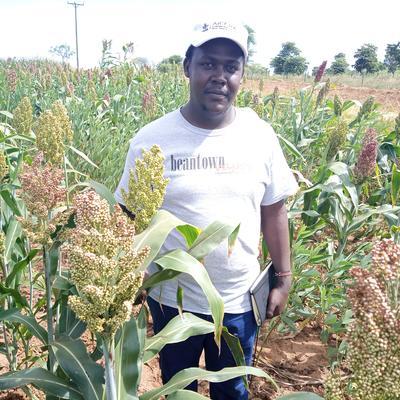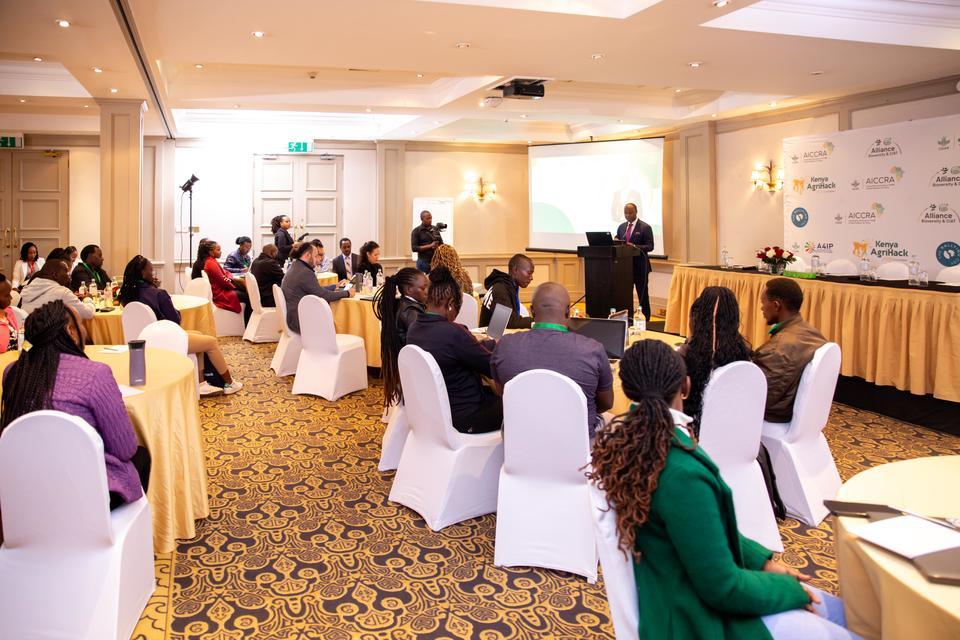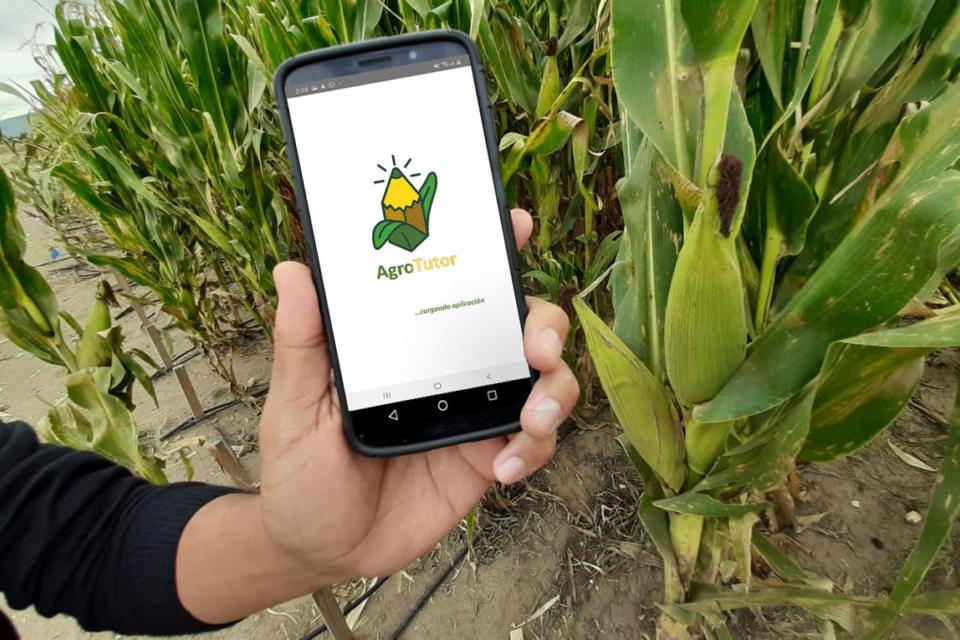Blog AICCRA and Lewa: Forging a Path towards Sustainable Agriculture and Community Resilience
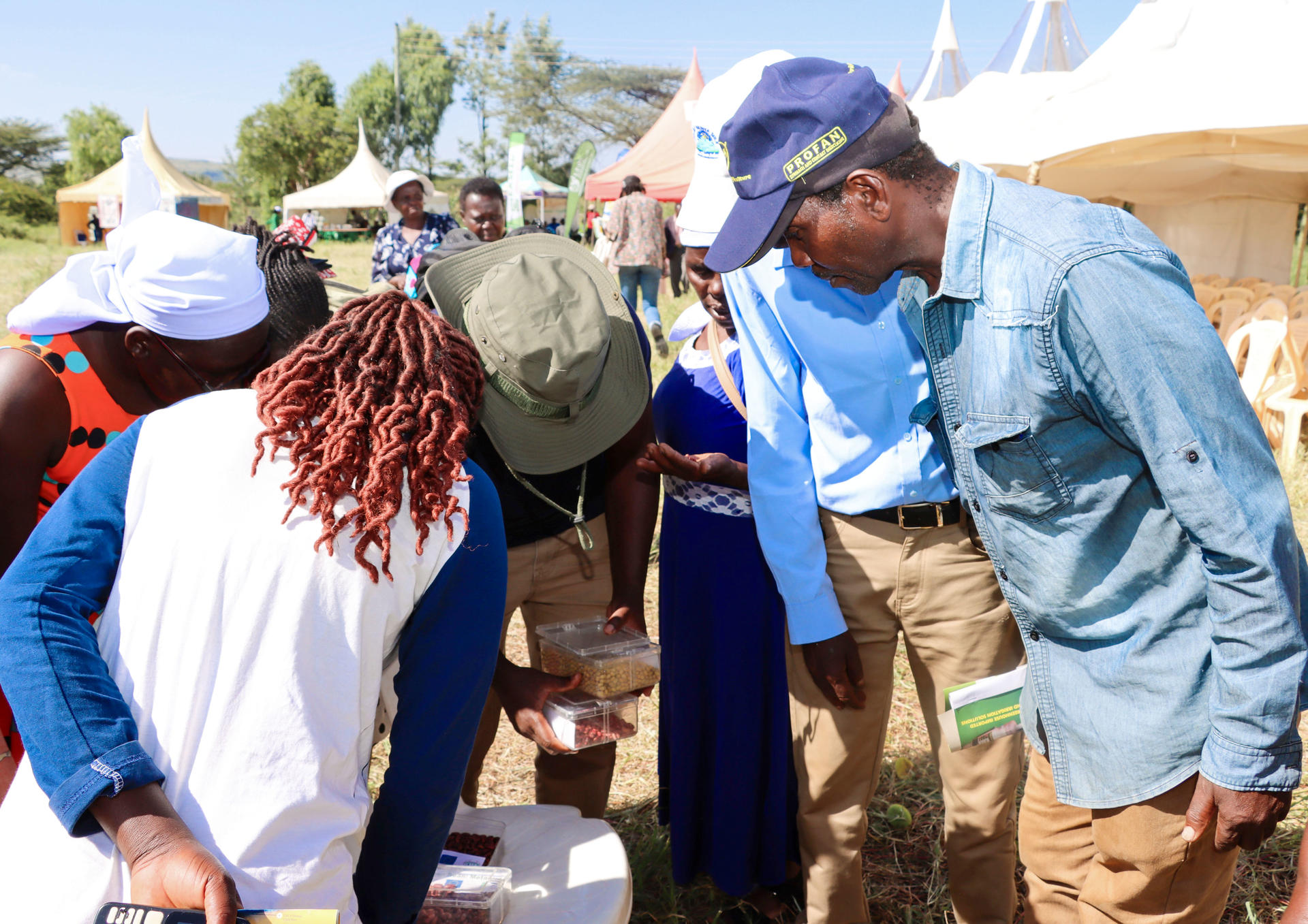
By Esther Nzuki, Ivy Kinyua, Boaz Waswa, Alex Nderi.
The Northern rangelands of Kenya are home to some of the most scenic and prestigious wildlife conservancies in in the country, including the Lewa Conservancy, a UNESCO heritage site. Underneath, however, is a simmering threat of climate change that threatens the livelihoods of thousands of farmers and the entire ecosystem. Therefore, for these communities, the impacts of climate change extend beyond the prospect of simply adapting to erratic rainfall patterns, and include a complex web of challenges, from heightened wildlife threats and water scarcity issues to the overarching risk of environmental degradation in the fragile ecosystems they call home. This is a time bomb unless action is taken to inbuilt sustainability on ecosystem management.
Lewa’s story is one of resilience, determination, and reality. Struggling in a changing climate without losing hope is a clichéd reality. “Should we now rethink what farmers have learned in dryland ecosystems?” This is the question we asked ourselves repeatedly during initial discussions on this partnership. This question is still on the minds of many – the transition from research, to development, to practical, participatory, and locally driven adaptation.
The Lewa Conservancy generally favors a holistic approach to livelihoods – people, animals, health and the planet. Such is the impactful collaboration we have forged through Lewa Conservancy. This partnership is dedicated to building community resilience by enhancing widespread access to enhanced climate smart agriculture (CSA) technologies. Run by Kenyans for Kenyans, Lewa Conservancy serves as a secure habitat for Africa's most endangered species through locally led wildlife protection and community development programs. Under their Community Development Programme, Lewa actively engages with over 60,000 people annually, addressing fundamental needs such as basic health, education, and livelihood needs. Over the past decade, Lewa Conservancy has supported thousands of farmers through various projects and programs. These initiatives have effectively increased agricultural outputs, improving food security and higher household incomes.
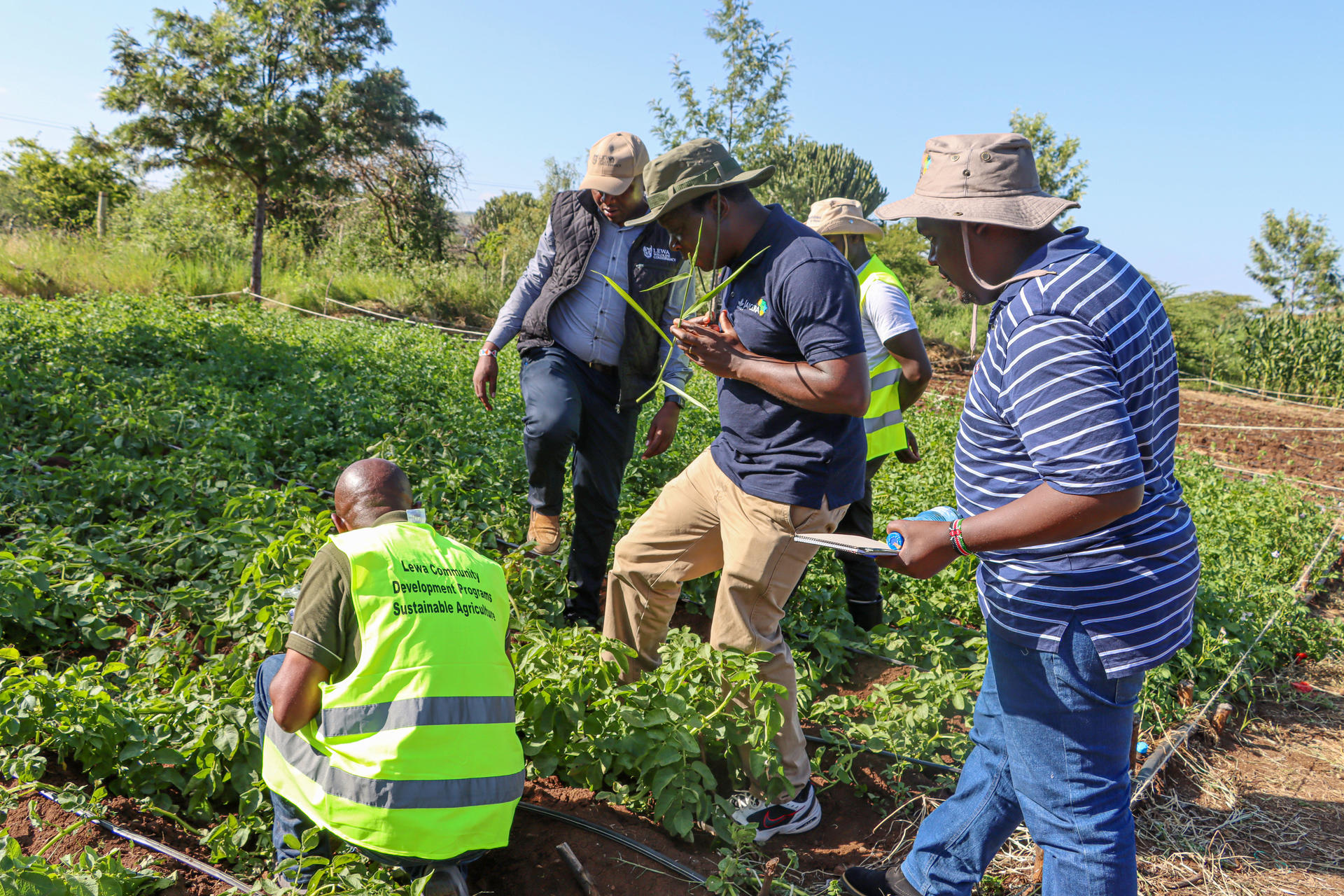
AICCRA-LEWA Leveraging on the partnership to scale up CSA technology for sustainable agriculture. Photo credit. @The Alliance/Esther Nzuki
Based on the synergistic efforts and aligned goals of the CGIAR's Accelerating Impacts of CGIAR Climate Research for Africa (AICCRA) and Lewa, we partnered to enable valuable knowledge exchange on building resilience and sustainable development, fostering mutual learning, and enhancing our respective outcomes. Additionally, leveraging the extensive networks and partnerships within the agricultural and conservation sectors strengthens our collective impact.
One such initiative highlighting our collaborative efforts is the Farmer Field Day, which took place at Munanda Primary School. This event brought together a diverse array of stakeholders, including input suppliers, producers, processors, and researchers forming a collaborative network dedicated to advancing sustainable farming practices. Munanda was the ideal venue as it embodies a commitment to education, innovation, and community engagement. In addition, AICCRA has established a demonstration site for climate-smart technologies such as improved forage types, and efficient water use through drip irrigation.
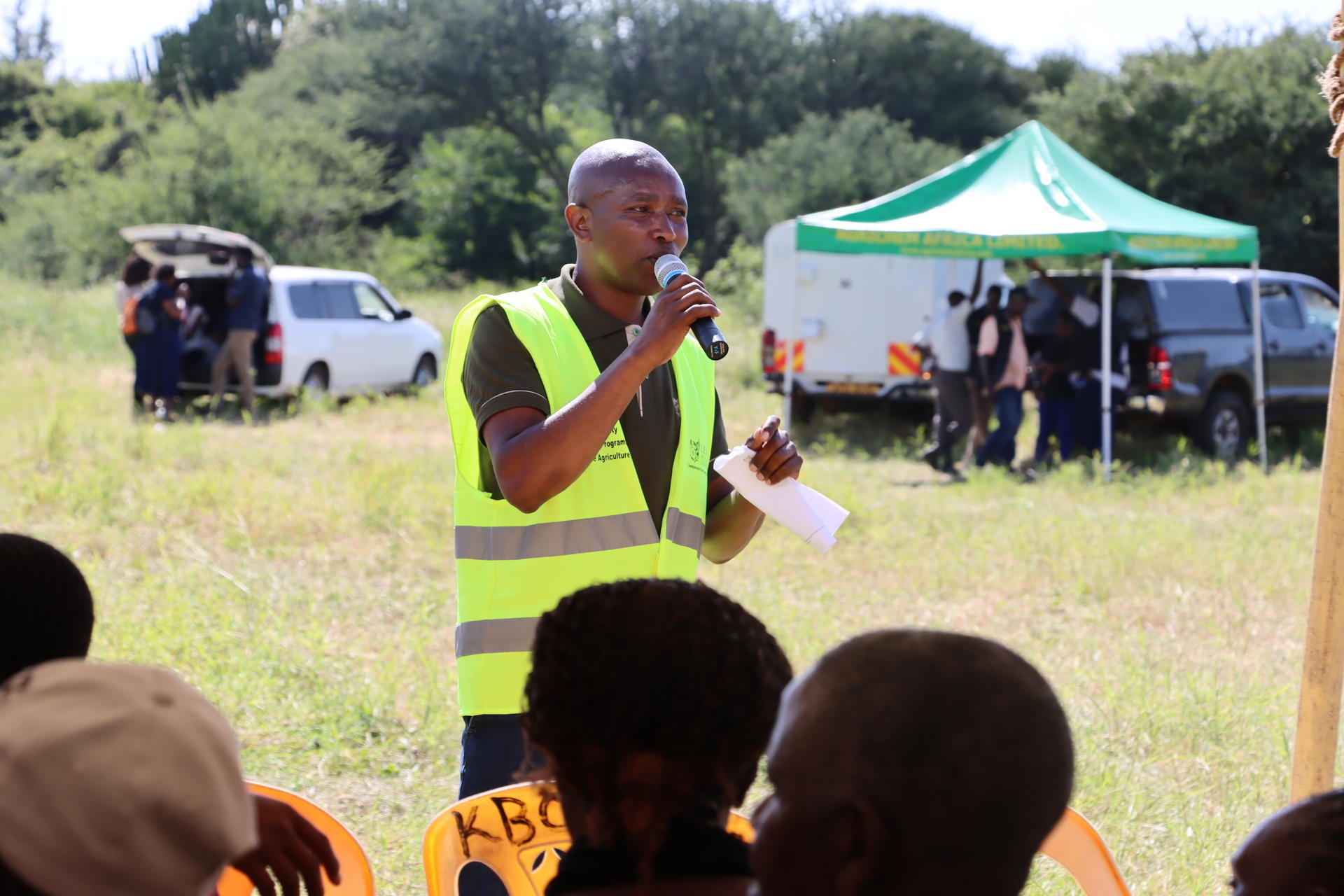
James Muthaura, Agricultural Extension Officer for Lewa Wildlife Conservancy, addressing the farmers. Photo @The Alliance/Esther Nzuki
The Farmer Field Day served as a dynamic platform for knowledge exchange and experience sharing. This inclusive approach not only empowered farmers but also provided valuable learning opportunities for the pupils. Involving the younger generation not only exposed them to practical knowledge about farming and sustainable agricultural practices, but allowed them to engage in hands-on activities such as tending to crops and planting seedlings, thus increasing awareness of responsible agriculture and its impact on the environment. The farmers got the opportunity to learn from the experts in the field on a wide range of topics such as pest management, the use of biogas, drip water irrigation, and potato farming, among many others. In contrast, the stakeholders got different tips and insights from AICCRA researchers. Noteworthy technologies, like the high-iron Nyota bean and other drought-tolerant varieties, demonstrated our joint commitment to innovation and sustainable practices. Through the hands-on demonstrations, the farmers gained practical knowledge that they could implement in their farms to increase productivity and improve their livelihoods.
Farmers were able to learn better ways of farming. They have witnessed for themselves how they can use technology and innovation to upscale their production and productivity.
James Muthaura - Agricultural extension officer- LEWA Wildlife Conservancy
The field day was a melting pot for stakeholders to network and build collaborations that could benefit their different lines of occupation. Pupils and budding change-makers from Munanda primary school joined in to learn from the exhibitions and shared their experiences in the 4K and environmental clubs at the school, positively changing their perspectives on agriculture and the growing prospects of the young and youthful getting more interested in agricultural activities. This collaborative initiative underscores our dedication to fostering positive change in agriculture and conservation, uniting our strengths to achieve impactful outcomes. Overall, the collaboration between Lewa and the Alliance through AICCRA brings together complementary strengths and shared goals, creating synergies that lead to impactful outcomes for sustainable agriculture and community well-being.
Farmer field days call for different partners and stakeholders to engage in and enhance knowledge dissemination, a foundational pillar of AICCRA. Partner and Stakeholder engagement is critical to the success of the agricultural sector, shaping the industry.
Ivy Kinyua - Senior Research Associate- Climate Action



